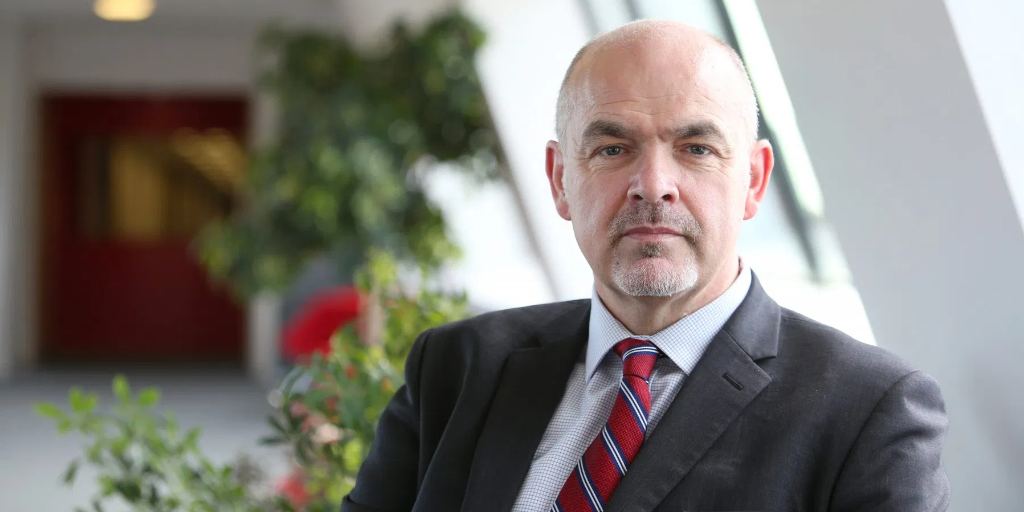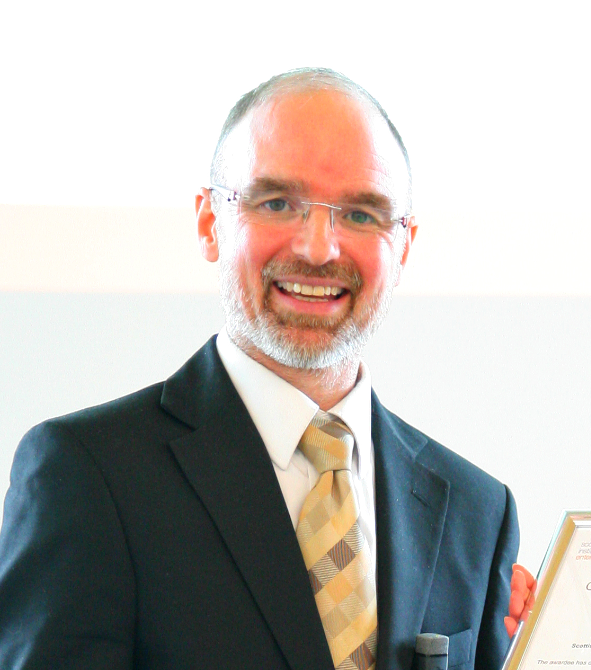Punching above its weight, the small northern country is a hotbed for innovation.

Scotland’s population of approximately 5.5 million people makes up just 8.2% of the UK’s total of close to 66.8 million citizens, and the country counts 18 universities (excluding Open University, a remote learning institution active throughout the UK). They range from internationally renowned institutions such as University of Edinburgh to the country’s most remote institution, University of the Highlands and Islands, in Inverness.
Out of the global top 100 universities in the Times Higher Education ranking for 2021, two out of the 11 British institutions were Scottish: Edinburgh (at number 30) and Glasgow (92). That is a reasonable average considering the publicity the golden triangle of London, Oxford and Cambridge tends to receive.
Scotland has long punched above its weight: the Muscatelli report, commissioned by the Scottish government in 2019 to consider universities’ engagement with industry, found that in 2017-18, there were 1,154 active spinouts in Scotland that generated an estimated turnover of £613m ($835m) – 19% of the UK total.
The world has changed dramatically over the past year, of course, but despite the challenges thrown up by the pandemic, data from accountancy firm KPMG found that venture capital investment in scale-ups in Scotland actually increased by approximately £10m in the third quarter of 2020, to reach £72m. KPMG however cautioned the deal volume fell from 22 to only 17, noting investors were seeking out late-stage deals and potentially causing a funding gap for earlier stage companies.
Inspiring entrepreneurs to seek venture capital
Yet, the shift to later stage deals is not necessarily a bad thing. Olga Kozlova, the director of innovation and industry engagement at University of Strathclyde, pointed out that the picture of the Scottish ecosystem was being distorted because “there are too many teams that move from one competition to another.”

She added: “Less grant funding and moving quicker to actually raise proper investment on commercial terms is where we need to go.” Competition prize money and grant funding “stops companies from asking difficult questions and becoming truly commercial.”
Kozlova is not opposed to supporting early-stage companies, of course. She set up the country’s most prominent programme for young spinouts, Converge Challenge, which started out at Heriot-Watt University but is now funded by all the country’s universities as well as the Scottish Funding Council, Creative Scotland and industry partners.
Kozlova left Converge in 2018 and the programme is now led by Claudia Cavalluzzo, who noted the pandemic meant the programme moved online but was still going strong. Cavalluzzo shared details from an economic impact report published recently, which showed that businesses that took part in Converge had generated £21.5m in gross value added and supported 524 jobs in Scotland in 2019.
An aspect missing in Scotland, Cavalluzzo said, was corporate venture capital. The country’s “geography, history and economics” meant such deals happened rarely. Despite Converge’s influence and support, however, she was unsure whether the programme was “big enough to tackle this”.

She agreed with Kozlova that spinouts, currently, relied too much on public financing, saying “there is a culture of people floating in the system” from competition to accelerator and back again because they “can make £2,000 there, another £1,000 there.
“What Converge is trying to do is tell them: use the system but use it wisely. Then go on and raise money – if you are serious about growth, you have to raise investment. That is the ambition and aspiration we want people to embrace, and not to keep it all close to their chest so they do not have to dilute their equity.”
Making the challenge more difficult is the fact that Cavalluzzo is keen to retain companies locally rather than have them relocate to another country. She welcomed the growth of angel investor consortia, including University of Edinburgh’s Old College Capital, and the fact they now provided a decent amount of early-stage capital.
Kozlova, however, cautioned that “we have an active business angel community, which is very good, but then you get angel type-funded companies, which always chase the next round and then exit before they achieve critical mass.”
She added: “The huge strength is Scotland is very well-connected as a small country. The challenge Scotland faces – as the government-commissioned Logan report said – is we fail to scale companies. We start them, but we do not have enough companies that have the ambition and the desire to do the hard work to grow.
“It is difficult to get people with experience to grow business internationally and in terms of finance we simply do not have enough.”
Part of the solution, Kozlova posited, was “to increase the critical mass of companies. Getting VCs interested in one university is difficult, you have a better chance with a pipeline of the whole of Scotland.”
She continued: “In terms of selling internationally, a lot more needs and could be done. We also need to get companies to fundraise outside of Scotland, but it takes some of our investors building international links themselves. Universities are trying to use their own networks to push companies internationally.”
It is not all doom and gloom, she explained: “You can grow here. Photonics company M Squared Lasers secured £32m from Scottish National Investment Bank and Santander in November 2020. We need more of that.
“There are a lot of horror stories about investors, but nobody talks about why. Why do you take an investment? What are the benefits it gives you?”
Kozlova, who has been with various institutions in Scotland to date, moved from Converge to Strathclyde nearly three years ago because “Strathclyde has a different culture. It is an entrepreneurial university and that comes from senior management, because the principal is very interested in this. It has always been an applied technical, international university.
“The other thing is ambition: Strathclyde wants to be the best. We recently launched our new entrepreneurship strategy, Strathclyde Inspire, and I do not believe I could have achieved this in a period of under two years at any other institution in Scotland.”
She added: “They already did a lot, so it is not like we had to build the strategy from scratch. There is also the Glasgow City Innovation District – a partnership between Glasgow City Council, University of Strathclyde, Scottish Enterprise, Glasgow Chamber of Commerce and Entrepreneurial Scotland – which fosters economic development and perspective. That was a really attractive proposition and an opportunity to do high-level things.
“We are also playing a key role in the Advanced Manufacturing Innovation District, which is by the airport and where we are building the national manufacturing institute for Scotland.
“Strathclyde is key in this innovation arena and what we are looking to do is create a real beacon of entrepreneurship. Part of our offering will be a state-of-the-art innovation and entrepreneurship hub in one of the two buildings that we are looking to build. It is a £150m development over the next few years and Strathclyde Inspire, our new entrepreneurship strategy, will be hosted there. We will be offering access not just to our own community but also to SMEs.”
This attitude “is absolutely unique” to Strathclyde, she claimed. “That is not to say other people do not do good work in commercialisation – Edinburgh’s numbers will always be higher. But to have this culture is unique to Strathclyde.”
The university has a broad range of spinouts and spin-ins – including in biotech despite lacking a medical school but conducting pharmaceutical research.
“One would be ClinSpec, which is a really interesting cancer diagnostics company that closed a £2.4m round in September 2020,” Kozlova said. “Another one would be 3F Bio, which manufactures meat replacement products.
“Then there is Estendio, which is earlier stage but is generating revenue. It is a software developer for dyslexic people to more easily make presentations.”
The portfolio benefits from two university venture funds, too: “The Strathclyde Entrepreneurs Fund does up to £100,000 and then we have one run by the enterprise and investment committee, similar to Old College Capital, and we invest £1.5m per year.”
Looking ahead, she said: “I would like to think that we would grow our pipeline. I will refer back to the Mark Logan report: you need to start with 5,000 companies to get to one unicorn. I am not that fussed about unicorns, if I am honest, but that is the scale we need to achieve and we are reaching that tipping point.”
“I do think the amount of grant funding will dry out because the government has spent so much on covid, they will not have the same amount of money to spend. There will be no choice for companies but to seek private investment.
“I hope Scottish National Investment Bank will be able to anchor a couple of venture capital funds. If we have more companies, we will be able to organise investment conferences attended by VCs from all over the world. That would be my ambition.”
She declared: “Strathclyde is heading somewhere really exciting.”
Giving taxpayers their money’s worth

George Baxter, chief executive of Edinburgh Innovations, is similarly enthusiastic about the future – despite the pandemic. He said: “Incredibly, we are busier than ever. The time that the academic staff have had to spend without labs during the hard lockdown enabled them to write up their disclosures and look at their inventions. We have been doing a lot to work on that.”
He continued: “We have had about a hundred covid-related projects as well that we are helping to run around the university.”
Edinburgh Innovations is a wholly-owned subsidiary of the university that has been operating for approximately 50 years and the office has around 120 staff – putting the history and size of the operation up there with the world’s best. Intriguingly, Edinburgh Innovations does not just handle the typical tech transfer activities from disclosures to spinouts, but also covers industrial awards, translational awards and student startups.
It means Baxter’s team is churning out more companies than many peers: in 2019-20, the 85 student startups that emerged out of Edinburgh put the university seventh in the UK and Baxter predicted that for the current period it would be “in the top two or three, and we will be on top for research-intensive universities.”
The increased activity is also noticeable in terms of spinouts, where the office is working on 25 projects that could become companies. Baxter expects around eight will be incorporated this financial year, a new record and up from an average of four to six.
Combined, the spinouts and startups attracted £32m of investment in the previous year, Baxter said, on top of the office facilitating “£58m of industrial and translational awards … and around £7m of consultancy”.
Notable spinouts, Baxter said, include SpeakUnique, which allows people suffering from neurological conditions and at risk of losing their voice to record a few words. The company then synthesises the voice so patients can sound like themselves when using a computer to communicate.
Another company is Invizius, which has developed technology to coat materials within a kidney dialysis machine. “Most people do not realise that if you have kidney dialysis, the biggest risk to you is heart problems because of clotting. As your blood goes through the dialysis machine there are interactions with materials and your blood can start to clot. The biggest risk of death is actually from heart problems, not from your kidneys packing up,” Baxter explained.
Sharing some more numbers, Baxter continued: “We have about 2,000 students signed up to our enterprise courses at any one time from our student population of just over 40,000. It is a fairly good ratio. We would like it to be a lot more, but it is fairly good.”
The figures make Edinburgh one of the leaders in Scotland, Baxter added: “We are, on most measures of entrepreneurship, top of the table: investment into new spinouts, students engaged, number of spinouts. And also, as much as sometimes award ceremonies are not a great measure of how well you are doing, we have won a lot of awards this year. For instance, the Converge Challenge awards.
“Something which I am really proud of is that if you look at our support from the Scottish government, we are by far the most efficient university. We are by far the largest output per pound of their support for the innovation of any Scottish university. And in fact, we are up there in the top handful in the UK as well for the same type of funding, whether it is HEIF funding or the Scottish version of university innovation funding.”
He continued: “In terms of taxpayers’ money, the Scottish taxpayer gets a very good return from what we do. It is another really important measure for us that we are seen to be contributing to the Scottish economy in a very efficient way.”
Baxter also picked up on grant versus equity financing, claiming that public money had proved important, particularly with regard to a place-based agenda: solving Scottish issues from a Scottish perspective.
He continued: “What we found recently is a lot of people looking at much more commercially-based investments rather than grants. For example, this year, and over the next couple years, we will see the development of the Scottish National Investment Bank, which the Scottish government is investing in. That will start off with a £150m Built in Scotland fund to invest in commercial ventures.”
Baxter added: “Over the past five or six years, we have been getting a good range of external pure venture investors into Scotland though. And in our numbers you can see that – if you went back five years, we were doing a fraction of what we are doing in terms of investments into startups. As I said, last year we did £32m into new spinouts and that is about six times what we did five, six years ago.”

This change is not unique to Edinburgh, Baxter acknowledged: “I think other universities in Scotland will tell you the same story.”
There are two challenges currently hanging over Scotland’s head: the renewed calls for independence following the country’s vote to stay in the EU but the Westminster-led decision to leave, and Brexit itself.
Baxter noted that universities actually made up an important part of Scotland’s economy, particularly the export market – which some might mistakenly perceive to largely consist of tourism, whisky and energy.
When it comes to Scottish independence, Edinburgh is agnostic, Baxter explained. “There are lots of small countries which have done well in the world, which are good homes for venture capital investment and startups and spinouts. The fundamental thing is that Scotland remains in a good place to do business to make those investments, to recruit staff and retain staff. There is no reason why we should not.”
Brexit, however, poses a more significant challenge. On the one hand, Westminster negotiated continued access to the EU’s joint research programme Horizon Europe, at which Edinburgh has been doing well. On the other hand, the UK refused to continue taking part in student exchange programme Erasmus, despite it being open to third countries.
Baxter said: “Almost half of our students, almost half of our staff are non-UK. We are a very international university that just happens to be in Edinburgh with all the benefits that being in Edinburgh and Scotland brings.”
Not one to run from challenges, however, Baxter shows no sign of wanting to move back to the private sector, where he spent much of his early career. He declared: “What makes you get out of bed in the morning for a job? It is not signing another licensing agreement, but the impact that licensing agreement could have, and working with people to whom this is really important stuff. I have been able to recruit and retain a really excellent team at Edinburgh Innovations.”
A place of curiosity
Someone who feels the same way is Chris Moule, the head of innovation and entrepreneurship at Robert Gordon University (RGU), who said: “I love my job. I have had four different jobs in my time here so that has kept me refreshed. I love the people and it is a really exciting place to work.”
Moule, who came to RGU from Strathclyde, noted that Scotland was “a very small ecosystem” where everyone knows each other and that, if RGU “keeps rubbing shoulders with Strathclyde, Edinburgh and Converge, we are in very good company.”
He specified: “RGU constantly punches above its weight in the Scotland ecosystem. I think we are seen as a modern, vibrant university that is doing really exciting and interesting things.
“We are not heavily research-based, we are not an old historical university, but we have a platform upon which we can build for the future. We are a future-looking university.
“We are also very open to collaborating and work well with partners. We engage with Converge, Scottish Edge and the wider ecosystem. We align very clearly with the national Can Do Scotland entrepreneurial strategy.”
He added: “It is a small country, comparatively. There are some core strengths that Scotland has in this area. We punch above our weight in terms of some of the spinout activity that we have going on. There is a real drive in Scotland and that is led by our can-do attitude.
“There is a willingness for universities to work together – and it is not easy for universities to work together. We all compete for the same market, but notwithstanding that there is still a willingness for us to work together and learn from each other to create this ecosystem.”
He continued: “There is also a recognition that different parts of the country have different needs and different expertise. The highlands and islands is very diverse, dispersed and rural and the people there have very different needs – a lot of them are micro-businesses focused on things like tourism and food and drink.
“People understand where their strengths are and where they need to then reach out to other parts of the ecosystem to get expertise.”
RGU, which ranked as the top Scottish university in the Times and Sunday Times Good University Guide 2021 including for performing extremely well in industry engagement, is a relatively young addition to Scotland’s roster of universities, it is part of what is known in the UK as a post-1992 university – a group of polytechnics that were upgraded to university status some three decades ago. Before this, it was known as Robert Gordon Institute of Technology. It has a traditional focus on the oil and gas industries due to its location in Aberdeen.
While Moule has been with the university for a decade, the entrepreneurship and innovation group has only existed for two years, he explained. In that short amount of time, the office has achieved a lot already, however. Moule said: “We were nominated for the entrepreneurial university of the year for the Times Higher Education awards. We did not win it, but to be nominated after two years was huge for us. We did win the 2019 Herald Education Award for Outstanding Business Engagement in universities.”
He pondered: “I think it is because of the accelerated nature of the past two years. We have done so much in terms of activity, but also the outcomes. The main thing that we have aimed to achieve is to change the culture to be one where, across students, staff and graduates, entrepreneurship and innovation permeates. For students in particular, self-employment or starting your own company is now a career choice.
“We have done that through the accelerator programme and through extra-curricular innovation skills classes at lunchtimes and in the evenings.
“And we have a dedicated team, that is the other thing. We received some funding from the Wood Foundation and that really oils the wheels of everything that we are able to do.”
The efforts are paying off, particularly among student engagement with the accelerator and workshops. Moule said: “One of the things that we were keen to do early on is what we have phrased ‘democratise entrepreneurship’. By this, we mean it is for everybody.
“Traditionally, entrepreneurship sits in the business school and the business school runs some excellent entrepreneurship modules. They do an MSc in technology entrepreneurship as well, but some of our best entrepreneurs are sitting in the school of architecture, nursing, health, arts, creative industries, law, and we wanted to ensure we were going into all corners of the university to find these pockets of innovation and entrepreneurship.”
Part of the approach involved identifying role models for students that “you would not typically call entrepreneurs,” Moule said, “so people like Coco Chanel and Jay-Z.”
It might seem unusual but, Moule explained, “they are successful in their own right, they are businesspeople, they have created a brand. They give customers what they want and so we talk about them. It is not necessarily Elon Musk, Richard Branson or Jeff Bezos.”
The approach has not only proven successful, it has now also evolved to using other students and graduates as role models for their peers.
Moule cited a few student startups as prime examples of RGU’s success: Archilink and Udrafter, which both created marketplaces for students looking for small jobs. Archilink focused on architecture students and has “grown a hugely successful business”, while Udrafter took a more general approach and went on to raise both private investment and more than £300,000 in crowdfunding.
There is also Knit It, launched by graduate Lucy Fisher who wanted to modernise knitting by digitising patterns and selling kits. The company has won awards and is getting traction from investors, Moule noted.
But it is another company that really has Moule beaming with pride and illustrates how his office’s work is paying off: Cocoa Unai, which produces a sugar-free chocolate bar and was launched by public relations student Alice Foster. “She was very shy and did not really have a good sense or strategy for what she wanted to do. She had, what was at the time, a pretty bad product. She brought it in, we tasted it and it was not great at all.”

All of that changed, Moule continued. “By the end of the programme, she had completely transformed not only her business and her product, but herself as well. She was very confident in her ability.
“She became an entrepreneur before our eyes – it was mesmerising. She stood up in front of 300 people and sold her business proposition of this incredibly tasty chocolate without sugar. She is amazing.”
RGU also does the more traditional spinouts, of course. One example cited by Moule is Safe Influx, which links back to the university’s historic expertise in oil and gas. He explained the technology: “When there is a kick in an oil well, gas comes up and previously when they shut the well in, it was a manual process. Alarms go off and people have to press buttons.
“Safe Influx’s technology takes in a lot of sensor information and automates that process. It saves valuable time. Safe Influx is doing well, they signed a memorandum of understanding with Weatherford in September 2020, they have some funding and are looking to launch a product.”
Moule referred to Graham Carter, the intellectual property manager in his office, who coined the phrase “the rising tide floats all the boats” to describe this year-on-year growth in entrepreneurship across the entire university.
He said: “Innovation needs to be at the core of what they do. There are disruptions coming to higher education. How long until Amazon create a university? You just have to look at what has been happening to the retail sector: Debenham’s is gone after two and a half centuries, it is just phenomenal.
“I would not be surprised if we saw a chief innovation officer sitting on the boards of universities in the next three to five years.
“Innovation needs space, I talk about this in some of my classes. It needs space in the strategy, in the budget, in the executive team and it needs physical space for it to happen. That is where universities need to go. Universities need to see the future coming and ensure that they do not get disrupted.
“We are seeing it already, look at LinkedIn Learning and Khan Academy. That is just the supply side but think of the demand side too. You have companies that do not particularly want a degree and students who are asking what the value is of going to university.
“Universities need to stay relevant and valuable to the customer base, and maybe they even need to rethink who their customer base is. Maybe it is not the 19 to 24-year-olds anymore – maybe it is the universal learner.
“I would hope in the next 10 years, universities start to take that seriously and position themselves so that Amazon University does not come and eat their lunch. Because Amazon is coming for everybody’s lunch.”
Part of the challenge is the future of work, Moule stressed. “Higher education, and schools, are preparing generations for jobs that have not even been invented yet – how do we go about doing that? One of the things that we like to do at RGU through our work is to ensure that people have mental agility, can work in teams, make decisions, be entrepreneurial, problem-solve.
“There is no degree in problem-solving, so these are the extra-curricular skills that we are trying to give them so that when they leave the university, they are well-equipped to manage the workplace of the future.
“I think that is an important one. That is about changing the students’ mindset and ensuring that they have that confidence and those skills, whether they go into a profession, they go and start their own business, or they go to work for themselves in the gig economy or freelance.”
RGU was very much on the way to achieving that goal, Moule concluded: “We have physical space – the One Tech Hub, which is our incubator in the city centre, and the Innovation Station on campus. These are safe spaces where people can fail, where they can go and try things and experiment, and be curious. We want to create a place of curiosity.”
With thought leaders such as Baxter, Cavalluzzo, Kozlova and Moule in charge, there can be no doubt that Scotland is indeed heading somewhere phenomenal. To help it get there, GUV will organise its first conference in Scotland on April 28, 2021 at Heriot-Watt University – our aim will be to deliver a hybrid real life-digital event bringing together all the different stakeholders across the Scotland and Northern England ecosystems, and we will provide more information in due course.










